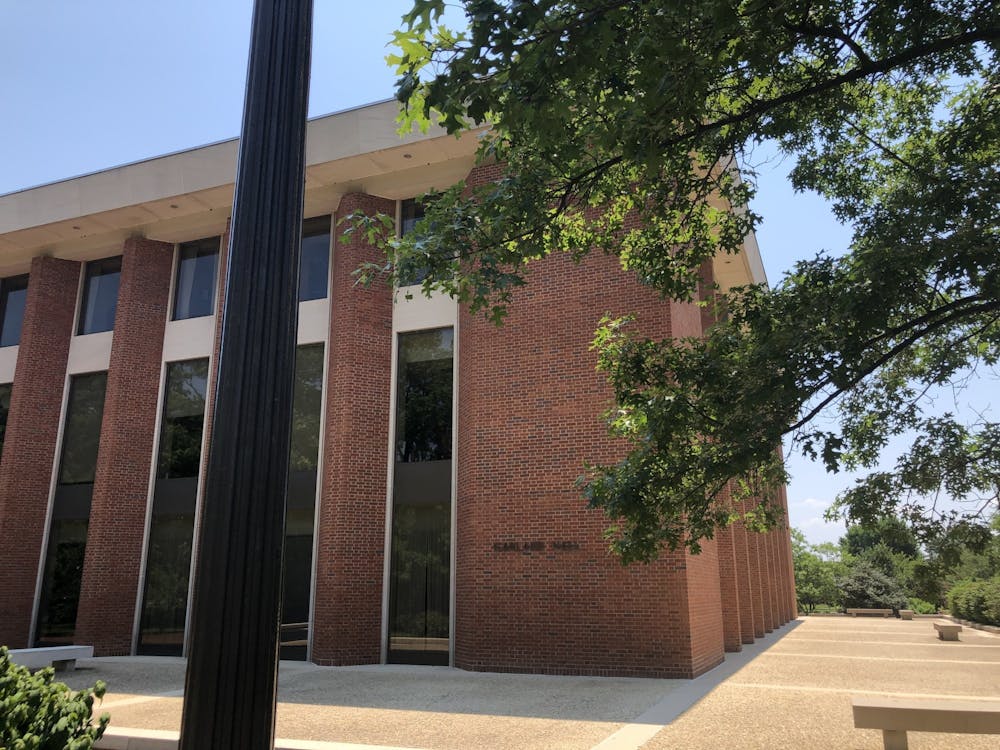For the sake of Baltimore’s health and students’ safety, University President Ronald J. Daniels and the University’s leadership must work more collaboratively with faculty, students, staff and the people of Baltimore.
As July gave way to August, the University was still making preparations for the return of undergraduates to Homewood Campus, despite the rising number of coronavirus (COVID-19) cases in Baltimore, which doubled in the first two weeks of July. As new cases continued to rise, University leadership in Garland Hall signaled heightened concern.
Just a month before students were due to return to campus, administrators were scrambling to finalize arrangements for testing undergraduates; they had not made a decision about frequency of testing, and they were still trying to recruit as yet untrained staff to assist. There was no mention of required testing for faculty, staff or contract workers (optional testing was planned) — even though staff in service fields, such as custodial and food service, are at greater risk.
Then, on August 6, Garland Hall abruptly reversed course: all undergraduate studies would be conducted on-line, and undergraduates were asked not to return to campus.
Garland Hall ultimately made the right decision for public-health and epidemiological reasons. But they made it too late, weeks after the dramatic uptick in cases was evident and without adequate consultation with faculty, students and staff. Meanwhile, undergraduates signed leases and put down rent deposits or prepared to return to dorms, when they might have preferred, in an online-only universe, to take a gap year, as some 20 percent of their counterparts at Harvard and other peer institutions have done.
Such jerry-rigged moves are depressingly routine as the University has run aground again and again. The administration’s response to the student-led Garland Hall Occupation of 2019 was, according to an independent faculty fact-finding committee, uncoordinated and its eventual decision to call in police to arrest the students “very troubling.”
The University’s proposed armed private police department, which was controversial from the start and never implemented, was suspended in the wake of national protests this June; the administration had never constructively addressed objections from faculty and others that public health-oriented alternatives were the better path to improving safety on- and off-campus. These decisions and others have been part-and-parcel of a high-handed, opaque mode of governance that has disempowered faculty and other voices within the University.
In the midst of a pandemic, we must be better prepared. Going forward, the administration must listen to the public health, epidemiology and medical experts at its own institutions to devise a plan for the spring that puts student, worker, faculty and community health at its center from the start.
We need explicit science-based criteria and clear priorities for re-opening, including baselines for city and state-wide positive testing rates, clear metrics for testing staff as well as students, and a well-resourced system for testing, contract-tracing and follow-up support for all COVID-19 patients associated with Hopkins. The University should also collaborate closely with community and city health officials to ensure that the frequent testing of students does not overwhelm medical facilities at the expense of city residents.
This will require a profound reorientation of modes of governance. Faculty, students and staff (including contract workers) from all divisions must participate not in anodyne, stage-managed town halls or listening sessions, but in the key governing bodies that make decisions about University policy, including fiscal and health policy.
As Hopkins fortifies its international reputation as a public health leader, it is a sad irony that the pandemic response from officials in Garland Hall has been haphazard and lacked transparency. We understand the challenges of making decisions in a time of uncertainty, but Hopkins faculty, students and staff, as well as our neighbors in Baltimore, are ready to work with the administration for the benefit of all — if they will listen.
Dr. Zackary Berger is an associate professor in the Division of General Internal Medicine in the Department of Medicine, as well as Core Faculty in the Berman Institute of Bioethics, with a joint appointment in the School of Public Health. He is a primary care doctor and bioethicist. As a staff physician at the Esperanza Health Center, he treats a number of patients who have or have had COVID-19.
Toby Ditz is an Academy professor in the Krieger School of Arts & Sciences and a Professor Emeritus of History. Before retiring, she taught the history of women and gender and the history of early America in the Department of History for over 35 years. She has lived in Baltimore since 1982.
Professors Naveeda Khan, Veena Das and Clara Han in the Department of Anthropology contributed to this article.





